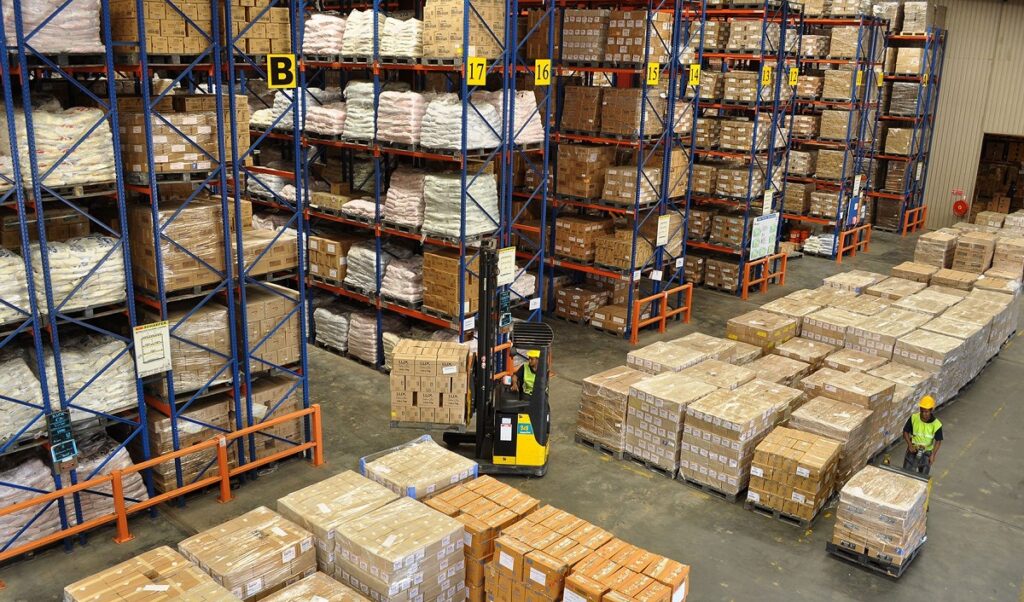
How to Choose the Right Warehousing Service in India
In today’s fast-paced and competitive market, choosing the right warehousing service is a critical decision for businesses. Warehousing is no longer just about storing goods; it plays a pivotal role in supply chain management, ensuring efficient logistics, inventory control, and customer satisfaction. For businesses operating in India, selecting a suitable warehousing service involves navigating unique challenges and opportunities due to the country’s vast geography and diverse business landscape. This guide explores the key considerations and steps to help you choose the best warehousing service in India.
Understanding Your Business Needs
Before diving into the options available, it’s essential to analyze your business’s specific requirements. Key questions to ask include:
-
What type of goods do you need to store? Perishable, fragile, hazardous, or bulky items may require specialized storage facilities.
-
What is the volume of your inventory? This determines the size and type of warehousing you require.
-
What are your distribution needs? Do you need a central hub or multiple regional warehouses?
-
What is your budget? Understanding cost constraints will help narrow down suitable options.
Types of Warehousing Services in India
India offers various types of warehousing services tailored to different business needs:
-
Public Warehouses: Operated by government bodies or private firms, these are cost-effective solutions for small businesses with temporary storage needs.
-
Private Warehouses: Owned and operated by businesses, offering full control over operations, suitable for large-scale enterprises.
-
Bonded Warehouses: Ideal for import-export businesses, allowing storage of goods until customs duties are paid.
-
E-commerce Fulfillment Centers: Tailored for online retailers, offering services like inventory management, order processing, and last-mile delivery.
-
Cold Storage Warehouses: Necessary for perishable goods such as food, pharmaceuticals, and chemicals.
-
Automated Warehouses: Employ technology for efficient inventory management and faster operations.
Location Considerations
The location of a warehouse is crucial to minimizing transportation costs and ensuring timely delivery. When choosing a warehousing service, consider:
-
Proximity to Markets: Warehouses closer to your target market can reduce last-mile delivery times.
-
Connectivity: Ensure good access to roads, railways, ports, or airports, depending on your logistics needs.
-
Regional Distribution Hubs: Major cities like Mumbai, Delhi, Bangalore, and Chennai serve as logistics hubs, offering advanced warehousing infrastructure.
Infrastructure and Technology
Modern warehousing services often integrate advanced technology to enhance efficiency. Evaluate the infrastructure and technology capabilities, such as:
-
Storage Facilities: Look for temperature-controlled spaces, shelving systems, or specialized storage solutions tailored to your products.
-
Security Measures: Ensure the warehouse has robust security systems, including CCTV surveillance, fire protection, and 24/7 monitoring.
-
Inventory Management Systems (IMS): Advanced IMS can provide real-time tracking, automated restocking, and efficient order fulfillment.
-
Material Handling Equipment: High-quality forklifts, conveyor systems, and automated guided vehicles (AGVs) can streamline operations.
Regulatory Compliance
Warehousing in India is subject to various regulatory requirements. Make sure your chosen provider adheres to:
-
Government Standards: Ensure compliance with FSSAI, DGFT, or BIS guidelines, depending on your industry.
-
Tax Regulations: Verify adherence to GST norms for smooth transactions.
-
Safety and Labor Laws: The warehouse should comply with local labor and safety regulations.
Scalability and Flexibility
As your business grows, your warehousing needs may evolve. Choose a service that offers scalability and flexibility, such as:
-
Space Expansion: Ability to increase storage space when needed.
-
Customizable Services: Tailored solutions like seasonal storage or value-added services.
-
Short-Term Contracts: Ideal for businesses with fluctuating storage requirements.
Cost Analysis
While cost is an important factor, it’s crucial to balance affordability with quality. Key cost considerations include:
-
Rental Charges: Compare the base rental rates of different providers.
-
Hidden Costs: Be aware of additional charges for electricity, security, or technology use.
-
Cost-Benefit Analysis: Evaluate whether the service adds value to your supply chain.
Reputation and Track Record
Researching the warehousing provider’s reputation and track record can help you make an informed decision. Consider:
-
Client Reviews: Look for testimonials and reviews from existing clients.
-
Industry Experience: Providers with extensive experience in your industry may better understand your needs.
-
References: Ask for references to verify their reliability and performance.
Value-Added Services
Many warehousing services in India offer additional features that can enhance your operations, such as:
-
Packaging and Labeling: Simplify your supply chain with on-site packaging solutions.
-
Reverse Logistics: Manage returns efficiently.
-
Transportation Services: Integrated transportation options for seamless logistics.
-
Customs Clearance: Assistance with import-export compliance.
Key Challenges in Choosing Warehousing Services in India
India’s warehousing sector faces challenges that businesses should consider:
-
Infrastructure Gaps: Despite advancements, some regions lack modern warehousing facilities.
-
Fragmentation: The market is fragmented, with varying levels of service quality.
-
Regulatory Complexity: Navigating India’s regulatory landscape can be daunting without expert guidance.
Conclusion
Choosing the right warehousing service in India requires a strategic approach that aligns with your business needs and goals. By evaluating factors such as location, infrastructure, scalability, and cost, you can find a solution that optimizes your supply chain and enhances customer satisfaction. As India’s logistics sector continues to evolve, businesses that invest in the right warehousing partnerships will be well-positioned for success in the competitive marketplace.